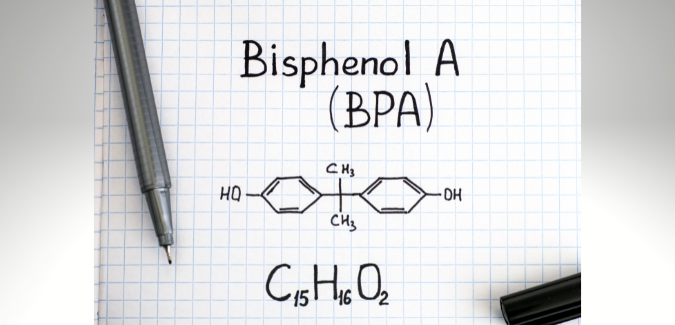5 Reasons Why BPA Present In Plastic Is Slowly Killing You
Scientifically known as Bisphenol A, BPA is a chemical compound that is used extensively in the production of all plastic products like bottles, containers, and cans, and other items like paper receipts. Initially invented in 1890, BPA was used as artificial estrogen and is known to imitate the effect of hormones on the body.
Later, it was used in the manufacturing of plastics and resins as it would help in producing products that wouldn’t break on heating or cooling. Given the cheap production cost and effectiveness, it immediately gained popularity and was used commercially on a wide scale.
Many studies have linked BPA to serious health concerns and some of these indicated that most of the population, especially Americans, were exposed to harmful levels of BPA. The current scenario is that BPA is everywhere. Being a soluble compound, it easily gets mixed with our food when we eat from plastic.
The toxic chemical is linked to various health concerns. You can find below the list of five ways by which BPS present in plastics is killing you.
1. Disrupts Brain Function
Medical research is suggestive of the link between BPA and hampered brain function. A study by Duke University Medical Center asserts that it interferes with the brain’s regulation of genes and also prevents the removal of chloride from the central nervous system. Excess chloride in the brain leads to dementia, Alzheimer’s disease, and other disorders.
2. Weight Gain
BPA is also linked to weight gain. Due to its hormone-like nature and effect, it disrupts the insulin production and resistance of the body. It can also cause a surge in the production of fat cells. It is recommended to ditch all the plastic in your life and switch to a plastic-free lifestyle.
3. Infertility And Related Disorders
The process of fetal development is very delicate and this is why women in pregnancy are asked to avoid alcohol or smoking. A study has, further, suggested that women should be extremely careful while consuming food from plastic or coming in contact with plastics in any manner. BPA is known to compromise the egg quality in women and hamper male reproductive function. Overexposure can lead to infertility and related serious disorders.
4. Cardiac Issues and Diabetes
For increasing cases of cardiac problems and disease, BPA is to be blamed partially. Since plastic is used extensively in packaging, it gets mixed with our eatables. Plastic cutlery and straws are also culprits. It is linked to an increased risk of suffering from hypertension, heart disease, and diabetes.
5. Cancer
Medical research has found that BPA is capable of mimicking estrogen and other hormones, and therefore, can promote unexpected cell development that can lead to breast, ovarian, and prostate cancer. One study has also found that BPA lowers the effectiveness of chemotherapy and therefore, hinders cancer treatment.
Where Is BPA Found?
It is found in almost everything made from plastic. This includes all the following products:
- Plastic straws and cutlery
- Plastic water bottles
- Plastic containers
- Canned foods
- CDs and DVDs
- Electronics
- All plastic food packaging
- Lenses
- Plastic Carry Bags
This list is of the common items we use every day. The presence of BPA, however, is not limited to this list.
The bottom line here is that anything that is plastic has good chances of containing BPA. Ditch plastic to move to a better and healthy lifestyle. Do your research and slowly find the alternatives to everything plastic in life.
You start by making a conscious choice of leading a plastic-free eco-friendly lifestyle. You can achieve this by eliminating all sorts of plastics from your daily usage.
You can start by using a bamboo brush instead of a plastic one, carrying your own water bottle whenever you travel, or carrying your own shopping bag when going out to shop.
You can find out about more eco-friendly products by checking out this list of eco-friendly products.


Comments
1 Comment
[…] is known to be very dangerous to human health as studies have linked the chemicals present in plastic to hormone-related illness, cardiac issues, and diabetes. The adverse effects of plastic […]
Comments for this post are closed.